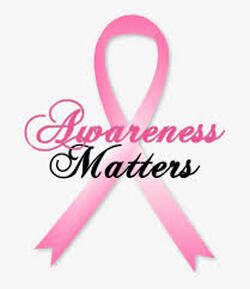 What is Genetic/Inherited Cancer? According to the National Cancer Institute, it's defined as "A type of inherited disorder in which there is a higher-than-normal risk of certain types of cancer. Hereditary cancer syndromes are caused by mutations (changes) in certain genes passed from parents to children. In a hereditary cancer syndrome, certain patterns of cancer may be seen within families." Let's have a quick Q & A on Genetic/Inherited Cancers: 1) Why would I think there would be a risk of Genetic/Inherited Cancer in my family line? Most cancer is not inherited from one parent or the other. In fact, only about 10-12% of cancer is inherited. But, in these families there may be certain patterns which suggest the possibility of inherited cancer. If you or a close relative fit any of these patterns listed below, you may want to meet with a genetic counselor to talk about your family cancer history:
 2) How do I find out if our family has genetic cancers? Laboratory tests performed on blood, saliva or tumor tissue can analyze a person's genetic make-up to tell if they carry an inherited mutation in a gene that is associated with an increased risk for cancer. Genetic testing in people already diagnosed with cancer can also determine if their cancer was caused by an inherited mutation. There are many different types of genetic tests. Some tests look for one or just a few specific gene mutations. Other tests—known as multigene panels—look for many gene mutations at the same time. The best test for you will depend on your family history and whether or not you have been diagnosed with cancer. Genetic testing should involve careful thought and consideration. Results may affect medical decisions for cancer treatment, screening, and prevention. The decision to undergo genetic testing is a very personal one, and the benefits and limitations depend on your circumstances. Not all genetic tests are the same: ordering the correct test and accurately interpreting the test results is not always straight-forward. For these reasons, it is important to speak with a CERTIFIED genetic counselor—if you are concerned that cancer may run in your family or if you are interested in genetic testing. 3) Helpful links, where to find more information:  Hoping this shares information on this confusing topic. Hoping it can Change Lives. Hoping We Always Find Hope!
0 Comments
Your comment will be posted after it is approved.
Leave a Reply. |
collaborateLet's Encourage One Another Through Our BLESSINGS & BATTLEFIELDS. SUBSCRIBE TO BLOG HERE:
Categories
All
|